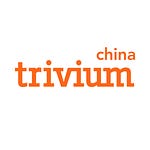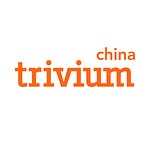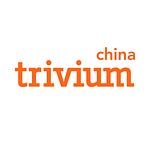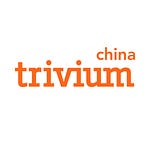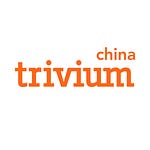On this week’s Trivium China podcast, host Andrew Polk is joined by his colleagues Kendra Schaefer (Trivium’s head of tech policy) and Ether Yin (Trivium’s head of policy research) to talk through the latest tech controls from the US on China – and China’s likely reaction.
The three discuss:
The Trump administration’s move to restrict sales of electronic design automation (EDA) software to China
The EDA landscape in China and whether Chinese tech firms can step in to fill this void in the semiconductor supply chain
A spate of other US restrictions on chemicals for semiconductors, butane and ethane, machine tools, and aviation equipment
How the Chinese will react to these moves, and what they suggest about the Trump administration’s internal coordination on China (or lack thereof)
What it all means for the 90-day trade truce — and the prospects for wider tech and trade negotiations
This stuff is pretty wild — and pretty depressing — but stick with us to the end, because we at least try to close on an upbeat note.
Transcript:
00:00:07
Andrew Polk:
Hi, everybody, and welcome to the latest edition of the Trivium China Podcast, a proud member of the Sinica Podcast Network. I’m your host, Trivium Cofounder, Andrew Polk. And I am joined today by two veterans of the Trivium Podcast, two of, I’m sure, what are our listeners’ favorite guests, my colleagues, Kendra Schaefer, who runs our tech policy research at Trivium, and Ether Yin, who runs our wider policy coverage at Trivium. Ether, welcome back to the pod, man.
00:00:37
Ether Yin:
Yeah. Thanks, Andrew. Great to be back, just in a very short time period.
00:00:42
Andrew:
Yeah, it’s becoming a regular thing. I like it. And Kendra, welcome. How’re you doing?
00:00:46:19
Kendra Schaefer:
Always a pleasure.
00:00:48
Andrew:
Glad to hear it. Glad to hear it. So, we kind of chucked out the kind of playbook for today that we were going to go down in terms of what we were going to talk about on the pod. We’re going to talk about econ stuff and go through the latest developments in China’s economy. But some late-breaking news today really made us think we should kind of do a semi-emergency pod — bring on Kendra and Ether, because specifically we want to talk about the latest controls that the U.S. government has put on chip exports or chip technology exports to China, as well as some other exports to China, and China’s likely reaction, and how all of that is likely to affect the 90-day tariff and trade truce that started on May 12th. So, that’s what we’re going to get into today. But before we do, as always, I have to start with the customary vibe check. Kendra, I’ll start with you. How’s your vibe today?
00:01:39
Kendra:
Vibrant. I’m vibing vibrantly.
00:01:45
Andrew:
Okay. All right. We’ll take it — vibrant vibe. Vivacious. Okay, all right. She was unprepared. We’re going to keep it loose today.
00:01:52
Kendra:
That’s all I got. I wasn’t ready for that question.
00:01:53
Andrew:
We’re going to keep it loose today, folks. So, I told you we checked out the playbook. That’s great. Okay. Ether, how about you, man?
00:02:00
Ether:
I feel good. But also I kind of feel a bit kind of weird. You know, everyone tells you that the closer you get to the center of a storm, it gets quieter, it turns out to be not true, to be wrong because I always look at the U.S., not always, most of the time look at U.S.-China from China, in China, but I think U.S. politics is really kind of center of storms. And, as of now, I’m getting closer to… I’m in the States now, and getting closer to a center is actually getting crazier.
00:02:30
Andrew:
And so yeah, well, I live in D.C., which is the center of the storm. And when you walk down the street, it’s very calm. Like you say, it’s calm in the center, in the eye of a storm. But what’s happening in D.C. government buildings is anything but calm. So, you’re 100% right that the closer you get to the center of the actual storm, while things around you may look normal, behind the scenes, some very strange things are going on. And that’s exactly what we’re going to talk about today. I share your vibe. My overall vibe is excited. I love talking to both of you guys about all this stuff, so I think we’re going to have a great conversation today. But before we get into that, some quick housekeeping.
00:03:11
As usual, we have to give everybody a quick reminder that we are not just a podcast here. Trivium China is a strategic advisory firm that helps businesses and investors navigate the China policy landscape. That includes policy in China towards things like tech policy, which Kendra covers – the auto sector, China’s transition to net zero, Ether oversees a lot of that wider coverage for us. But it also includes policy towards China out of Western capitals like Washington, D.C., London, Brussels, etc. So, if you need any help on that front, please reach out to us at hq@triviumchina.com.
00:03:48
We’d love to have a conversation about how we can support your business or your fund. Otherwise, if you are interested in receiving more Trivium content, check out our website, again, triviumchina.com, where we have a bunch of different subscription products that you can check out, both free and paid, that will help make sure you get all the China policy and intelligence you need on a regular basis. And finally, please do reach out or get in touch with your friends and colleagues about Trivium. Tell them about us. Tell them about the pod, about our company, so that we can continue to grow the listenership and the business. And while you’re at it, please like and subscribe and all that good stuff so we can get the podcast in front of more people over time.
00:04:27
All right, enough housekeeping. Let’s get into it, y’all. The big news today is that the Trump administration, at least it is being reported initially by the Financial Times, and then some follow up reporting by Reuters and The New York Times, we’re going to start with the Financial Times piece, which is that the Trump administration is telling certain chip equipment and technology makers to stop shipping goods to China, basically, quoting from the FT now,
“The Trump administration has told us companies that offer software used to design semiconductors to stop selling their services to Chinese groups in the latest attempt to make it harder for China to develop advanced chips. Several people familiar with the moves at the U.S. Department of Commerce had told so-called electronic design automation Groups, which includes Cadence, Synopsys, and Siemens EDA, to stop supplying their technology to China.”
00:05:19
So, electric design automation is what we’re mostly going to focus on today. That’s EDA. Now, quoting again from the FT, “The Bureau of Industry and Security, the arm of the U.S. Commerce Department that oversees export controls, issued the directive to the companies via letters, according to the people that were interviewed for this story, it was unclear if every U.S. EDA company had received a letter.” Now, this is important because these moves target a key part of China’s semiconductor supply chain. Because EDA software is critical for chip design and testing. We’ll get into how this impacts the 90-day trade truce and the likely Chinese reaction. But Kendra, let me first just toss it over to you. Can you just walk us through the basics here on what is EDA? Why is this so important, and why is this going to be a big deal?
00:06:12
Kendra:
Yeah, absolutely. So, as you just said, EDA is this kind of critical input to the semiconductor supply chain. It is software that is used to design chips. EDA stands for Electronic Design Automation. And the software is super, super hard to make. It’s incredibly difficult to make. so much so that China’s been trying to make it domestically for ten, 15 years at this point and hasn’t had a tremendous amount of success. And the reason that software is so difficult to make, and just to put that in perspective, I mean, China is an incredibly strong country on software, right? They have excellent background, digital technologies, tons of talent in the digital space, major tech platforms, AI experts. Right? This is not a country that is devoid of talent in this arena.
00:07:00
And yet they still struggle to produce leading-edge EDA. That should tell you something about how difficult the software is to design. The reason that’s true is, one, modern chips have billions of transistors in them. And that basically means when you’re designing them in software, the software has to be able to handle intricate modeling and simulations on the interplay between every single one of those transistors, right? Which is super compute heavy to do. EDA tools also have to be programmed to understand very complex principles like semiconductor physics and advanced math, and parallel computing, that kind of thing. It’s also very R&D intensive as an industry. I actually read somewhere that Cadence, which is one of the big U.S. EDA companies, spends 40% of its revenue on R&D, which is just huge.
00:07:51
It’s a giant chunk of revenue compared to most firms. And then, finally, it’s really difficult for new software firms and new EDA firms to enter the market and start generating revenue because customers do not switch off those tools once they are on them. It’s kind of like operating systems. People use iOS, they use Windows. They hate to switch. Similar with this software, but much more complicated. You know, you build your whole design process around these tools. Your whole company is like you’ve hired people that know how to use the tool that you use, the chip design process is specific to that tool, so it’s very difficult for another tool to come into the market and entice customers away from existing toolkits. So, that’s why this is a particular choke point for China.
00:08:39
Andrew:
Yeah. Thanks for that explanation. Super helpful for me, I’m sure, for the listeners as well. We’ve touched on a couple of the major EDA companies. I know the industries pretty consolidated. Can you walk us through like, who the major EDA companies are? So, the FT listed three: Siemens EDA, Cadence, and Synopsys. I’ve seen those referred to as the big three. So, walk us through kind of the landscape of the corporate side of this. And then, can you also touch on, are there any real competitors in China? You just said it’s quite difficult to do this. But we’ve seen the Chinese media at least claiming that this will help domestic companies. So, one quote we have is the Securities Times noted that EDA companies in China are super bullish, saying that top domestic players could easily take over the Big Three’s market share. Can you just walk us through a little bit of that dynamic?
00:09:31
Kendra:
That’s an interesting quote. So, the answer on the U.S. side is very simple. Synopsys, Cadence, and Siemens EDA are called the big three because they have vastly dominate the market. I think in China, they have 90% market share, 85% market share, something like that. And Chinese competitors only have 10% to 15% estimated Chinese market share in the space. So, it’s really those three companies that are the major concern in the EDA space. China, despite this being a difficult field to enter, that’s not to say, of course, China doesn’t have any players in the space at all. Empyrean is probably the number one cited Chinese EDA company. There’s also Semitronics, X-EPIC, Primarius, right? So, a smattering of, I would say, 4 to 7, maybe ten, Chinese EDA firms that are the primary domestic players.
00:10:24
But again, they’re still quite behind. And you can see that from the small amount of market share that they hold. In terms of the question of whether or not U.S. players exiting the market would leave room for Chinese players to double up market share. Sure, absolutely. I think there’s an open question here, which is pretty interesting about how, which I don’t actually know the answer to, which is how some of these software systems are delivering their services. Because if that software is hosted locally on these firms computers already, then there is a long lag time by which customers would continue to use the software they already have access to and would not necessarily switch in a short period of time. Right? But if those services are delivered by cloud subscription, and it is possible for those companies to cut off access to services immediately, now you’re talking about a situation where there might be an immediate exodus. But that exodus would be very, very highly disruptive for Chinese semiconductor design firms.
00:11:27
So, there’s definitely a possibility that this causes some disruption. Mostly, to my mind, the question is, and we’ll talk about this later, but the question is whether or not this move by the Trump administration is a temporary threat to garner negotiating leverage or, actually, if they’re going to keep this in place for the next several years.
00:11:45
Andrew:
Yeah. Great stuff, great stuff. Thanks for sort of laying out the basics for us. It’s super helpful. We’ll get into, as you said, maybe trying to disentangle the Trump administration’s sort of thinking here or strategy or tactics, whatever you want to call it. But before we do that, let me throw it over to you, Ether. Have we seen any reaction from the Chinese so far on this move? I mean, so far, all we have really is news reports that seem like they’re quite credible. They’ve been reported by several different outlets at this point. But have we seen any reaction from the Chinese? If so, what is it? And if not, why not? And then follow-up question, when the Chinese do react, presuming this is an official act, what do you expect them to do?
00:12:26
Ether:
Yeah, that’s a very easy question. First of all, reactions, I mean, definitely, I think we saw a statement by China’s Ministry of Commerce, MOFCOM. Based on kind of reporting, I mean, there was no surprise there. And also in terms kind of the talking points in the statement, I think there’s also no surprise. Basically, you know, asking the U.S. government to correct this kind of wrongdoing, wrongdoings, express kind of they’re angry. And the third one is if they don’t kind of correct MOFCOM promise, they will do everything they can to basically self-defend the Chinese interests. I think that’s the kind of reaction we’ve got from the Chinese side so far.
00:13:11
In terms of, you know, will they actually kind of do something about this move? I think, first of all, I think, as always with the Chinese government, they will probably wait for some kind of official confirmation from the U.S. government about this restriction so they can make sure, first of all, it’s official and reading through the actual restrictions to assess what’s the actual impact of that stuff. And then we can probably expect some kind of retaliation from the Chinese side. I think in terms kind of the kind of avenues where they can hit U.S. side, first of all, I would say there’s a kind of possibility that they may not retaliate, even though I think that possibility probably kind of slim. It depends on how they view the situation.
00:14:01
But if they do retaliate, I think kind of first thing comes to my mind would be this acquisition deal. I think there’s, I think, answers kind of acquisition of Synopsys. The deal, that deal is currently kind of being reviewed by Chinese kind of market regulator SAMR. I think there’s very high kind of possibility with these kind of restrictions. Basically, Chinese regulator is going to go with this kind of mindset, you know, if we cannot get this software, then we’re going to make the kind of industry… and the two companies I just mentioned, there are all kind of U.S. companies, right? So, we’re going to basically tank that deal as a kind of retaliation.
00:14:41
I mean, it doesn’t necessarily need to be kind of in the form of disapprove of the deal, but they can just basically quietly wait it out of the deal, or use a deal as a kind of negotiating bargaining chips to the U.S. government, basically saying, “You either kind of roll back the restriction or we’ll kill the deal.” And then the second avenue I can think of is they could further increase the rare earths element, any kind of export restrictions. I actually don’t expect they will add new elements unto the list. So, subject basically making because by adding kind of new additions to the list, which, by the law, actually means business around the world will be difficult to get more elements from China, I think they want to make it kind of more targeted to U.S.
00:15:29
So, it’s basically maybe making U.S. companies apply for export licenses even more difficult. We’re already seeing the meetings yesterday. We covered it in our daily. There’s meeting basically between MOFCOM and the EU chip industry. The overall vibe from the meeting seems like, okay, the Chinese regulator want to make it easier for the EU companies to export certain kind of rare earths elements. I think they want to maintain that, basically, but make the U.S. companies feel the most kind of pain of getting that license. There are also kind of potential avenues they can retaliate. And that includes, like maybe put U.S. companies in particular, where they put those three U.S. EDA companies on the unreliable entity list. I kind of doubt that they will use that just because, what’s the point for Chinese government to do that? Because the U.S. government already did that for you. Because the consequences for companies that get put onto that list is that they won’t
00:16:33
Andrew:
They can’t sell into China.
00:16:35
Ether:
Yeah. So, U.S. companies do that for you. So, why do that again? So that’s the potential avenue, but I don’t think the Chinese government will argue it’s that. And the last one probably is kind of antitrust investigation into some of the companies. But that also has some, in terms kind of technical, it’s kind of would it be difficult to deal with that just because, as Kendra mentioned, those top three takes like 80 to 90% market share. But if you look at each of them, no one is going to actually kind of monopolize the market. So, it’s also going to be hard to pursue. So that’s I think it’s kind of a few kind of avenues for the Chinese side to explore kind of retaliation.
00:17:19
Andrew:
Yeah, that all makes sense. And I think it’s very much within, obviously, the playbook of what China has done to respond to the past several rounds of tariffs from the Trump administration. Just for a little bit of context, in case some listeners might not fully understand the piece about the merger review that Ether was talking about, there’s a global M&A deal between a company called Ansys, which is a chip software designer, and Synopsys, which is one of these EDA companies who’s been told not to sell into China by the Trump administration.
00:17:47
Every major market reviews global mergers like that that will impact their market. China’s market administrator, called SAMR, is reviewing it. We work with a lot of clients who are looking at this merger deal to see whether or not it will go through. SAMR has kind of played it very close to the chest as to whether they would approve it or not. And basically, they have used this M&A review process as leverage over the past several years in geopolitical back and forth, particularly with the U.S.
00:18:19
I think the sense was it probably would go through previously, like maybe put it at 60% or maybe 70, that the likelihood was that SAMR was going to go for it. But at this point, they very much, I agree with you, Ether, that that will be the first chip they play. Okay, now we’re going to use our leverage to potentially deny approval for the merger. But as you said, the typical playbook for SAMR has not been to outright deny it, but just to let the clock expire. They have to approve the deal by a certain time. And if they don’t, it goes away. So, well done on laying out all the options. Kendra, I just want to throw it over to you as well. Any additional thoughts on, you know, you’ve been covering China’s retaliatory playbook that Ether laid out very well, but for many of your clients, any additional thoughts on how China might approach is.
00:19:08
Kendra:
The only thing that I think differentiates the current situation from previous rounds of escalatory and retaliatory actions and responses is the fact that the U.S. and China are supposed to be having backchannel negotiations about trade right now, which adds this interesting spin on the ball. And I say that because it’s interesting to point out that this is the second time that BIS, under Trump, has done something antagonistic towards China related to chips that does not constitute the release of a loud rule. Right? We just, a couple weeks ago, saw the guidance from BIS on Huawei’s Ascend chips, where essentially BIS said, “Listen, this is a nonbinding rule at the moment, but we strongly suggest that no company on the planet uses Huawei’s Ascend chips. And if you do, you will be in violation of various U.S. rules.”
00:20:08
And that was extremely provocative because it suggested that even Chinese companies might not be able to use chips produced by other Chinese companies. Right? Which was quite shocking. But that wasn’t a rule that did not constitute BIS saying this is a hard and fast regulatory decision that we have made, and everybody must abide by this starting now, or we’re going to come after you. They almost tabled it in a kind of softball-ish way. It’s unclear to me whether that was, at the time, that was a negotiating tactic to give Trump leverage, or if what BIS was doing was teasing the fact that that rule is that is the direction they plan to pursue, regardless of where trade negotiations go. And that’s what we can expect to see from BIS in coming months.
00:20:49
Again, regardless of what happens on U.S.-China trade. And so similar issue here. Right? This was not an announced rule, necessarily. It was BIS sending letters to specific companies. And this is a type of retaliation that China understands incredibly well. It is the type of negotiating leverage that China does all the time. And what’s funny about this to me is that, like China, assumes that the U.S. has always worked like this, but it actually has not. And so I don’t think it’s actually going to be that strange to Xi or the Chinese side that the Trump administration is leveraging the executive branch’s powers in this way to kind of garner negotiating leverage. So, if that’s the case, I think China, as Ether said, right? I read somewhere that the reason that BIS did this was to kind of penalize China for its imposition of critical mineral controls.
00:21:43
And if that is the case, yeah, China is probably going to double down on critical minerals. They’ll just kind of tussle with these kind of like silly export restrictions for a little while until somebody goes back to being an adult and having an actual conversation about this. But so if this is a leverage issue, then all of this noise can be expected in the lead up to some kind of conversation or resolution, or not, but some kind of actual decision. If this isn’t noise, the real concern for me is that it seems to me that the Trump administration has not really decided yet whether or not it’s going to follow in Biden’s footsteps in the sense of making export controls a non-negotiable national security issue, and trying to sell China on the idea that export controls as a NatSec issue is separate from trade.
00:22:27
Right? Which doesn’t play well. And if that is the case, and not only is the admin going to take that position, but they’re going to double down on some of these export control rules and expand into software and expand into attack Ascend. Now we’re in a very dangerous situation. I think the retaliation from China could be quite extreme in that case because that becomes untenable if China cannot, if it knows it cannot, go through a trade negotiation to resolve that export control issue in another way. So, that’s the state of play as far as I see it.
00:22:58
Andrew:
Yeah, I think that’s a great point. And I actually am worried about sort of that more extreme scenario. I talked to Cory last week on the pod a little bit about this with specifically the Huawei rule, whether or not that was a designed move to build leverage or if it’s just disjointedness or discombobulation within Trump administration. And the more conversations I’m having over the past few weeks in D.C. are that Howard Lutnick in the BIS and the Commerce Department are going one way and Scott Bessent in the Treasury Department are going another way. And these things are heavily at odds with each other, these approaches. We will come back to this, but the problem with that is that the Chinese do not see these as separate issues.
00:23:41
They don’t see this as, oh, we’ll do export controls and NatSec on this side and we’ll worry about tariffs. For them, it’s all one thing that we’re negotiating over, which is trade and tech access. And just to add on to that point, the reason that I’m a little bit more worried about this is that there’s been other reporting, so we’ve been focusing on the EDA aspect of this, but there were other reports over the past 24 hours from The New York Times and Reuters that actually the controls may be more significant. So, from the New York Times, the Trump administration has suspended some sales to China of critical U.S. technologies, including those related to jet engines, semiconductors and certain chemicals and machinery.
00:24:22
The move is a response to China’s recent restrictions on export controls of critical minerals to the U.S., as you said, Kendra, “a decision by Beijing that has threatened to cripple U.S. companies supply chains, according to two people familiar with the matter.” So, that’s from New York Times. Then from Reuters, “Products affected by these export controls include design software and chemicals for semiconductors, butane and ethane, machine tools, and aviation equipment.” So, my thinking is like this is basically supply chain weaponization by the U.S. side. Not that China doesn’t also do supply chain weaponization.
00:24:59
Kendra:
Absolutely.
00:25:00
Andrew:
In fact, I am really worried that, I mean, tariffs, like companies can figure out how to deal with tariffs. Companies cannot figure out how to deal with supply chain weaponization. And supply chain weaponization is what this looks like to me. Ether, I want to throw this to you now. Like, how do you think this will impact China’s approach to our 90-day de-escalation? You already said some ways that China might retaliate. Can they retaliate and still be negotiating? Can we be like, you know, the whole Chinese thing of hugging while fighting, can we be negotiating and also taking potshots at each other on the export control piece? What’s the view from Beijing here, you think?
00:25:42
Ether:
Well, I don’t think this will kind of tank the 98 truce in a way that they already kind of roll back tariffs. Does that mean they’re going to destroy that and we’re going to see tariffs hacks again, at least an initiative by the Chinese side? I don’t think that will happen because I think, you know, it’s also on the Chinese side interest to keep the tariffs as low as possible. Because I think that, to Chinese policymakers, is a matter of just how bad the macro economy is going to get hit with tariffs, right? So, that’s the kind of almost to me, it’s a kind of macro-econ kind of story. I think what this will make is it will make the negotiation, further future negotiations about how we can reach a so-called kind of grand bargain kind of more difficult because what the both sides are supposed to do during this 90 days is basically kind of negotiate a lot of kind of strategy issues splitting the countries.
00:26:42
There’s already kind of a very long list. And by this new supply chain kind of weaponization, as you’re adding kind of new items into, kind of both sides on their list, which are going to make that negotiation even harder.
00:26:56:
Andrew:
Well, that’s what I’m worried about here is, I mean, fine, the tariffs stay low. But, in my view, especially if China retaliates and then puts on additional or rare earths export controls on rare earths or tightens current export controls on rare earth, then can’t won’t both sides just look at each other and say, “Well, you didn’t keep up your side of the 90-day truce, so it’s effectively invalid. What do we negotiating over if we’re both like still taking actions?” Because part of the 90-day truce was, at least from the Chinese side, was we’re going to pause or roll back our non-tariff restrictions, which my understanding was the U.S. ask was specifically to roll back the restrictions on rare earth export controls. Right? I mean, in my mind, this has the potential to totally pull that up because then both sides say you didn’t keep your side of the bargain. And I think, credibly, both sides will think that.
00:27:50
Kendra:
Yeah. But you know who’s got like a really interesting perspective on this is Graham Webster. I don’t know if you guys read his Substack, which is pretty great, but I pulled it up here because I just want to quote what he said. I love Graham because I’ll read what he says sometimes and be like, oh yeah, I don’t even know… You know, what a great point. He says, “The Geneva deal, at the basic level, was not a truce, but a unilateral U.S. retreat met with the removal of Chinese retaliatory measures. Trump backed down on the tariffs front in specific, and the Chinese government pledged to remove its tit for tat measures responding to unilateral U.S. moves. That’s it. Neither side got anything else except an agreement to talk more.”
00:28:26
In other words, the argument is, was there a 90-day truce actually to scuttle? Which is a very good question to ask, I think, at this point, because whatever it was, it was like, you know, it was pretty shaky, right? The foundation was exceptionally shaky tonight.
00:28:41
Andrew:
Exactly. Totally. Well, and I mean, I’ve been saying since this thing started that this is exceptionally fragile and there are a million ways that this détente, ceasefire, whatever you want to call it, can go off the rails.
00:28:52
Kendra:
Absolutely.
00:28:53
Andrew:
And, I mean, I thought the Huawei thing might be enough to do it. It probably wasn’t. It probably isn’t. But this might be, especially if the Chinese feel compelled to respond. Ether, what’s your kind of reaction to Kendra’s thoughts there in the smart quote from Graham?
00:29:08
Ether:
Yeah, I think the Chinese side will continue to play their usual playbook, it’s tit for tat. I mean, I think you are right that, I think, as U.S. side keep pulling punches from China, trying to restrict technologies go to China, and then Chinese side will feel kind of obligated to kind of retaliate. And then I think what we’ll see is a kind of another kind of vicious cycle where when industry goes to both sides, government on both sides, basically saying, “Hey, this not in a war. You are kidding us.” And then both sides kind of feel some pain, and then they will find another way to kind of get back to the table. That can totally happen, I think.
00:29:50
Kendra:
You know what’s funny about this, too… Sorry, Andrew. Did you want to-?
00:29:53
Andrew:
No, go ahead.
00:29:54
Kendra:
Is that it always seems to me that what China tries to do is institute Pavlovian training with the U.S., right? If you do this, the response will be this. If you do that, the response will be that. If you escalate, we’ll escalate. If you de-escalate, will de-escalate. And somehow that Pavlovian training has just gone over every person’s head. It hasn’t been successful. The U.S. doesn’t even really respond to or recognize that that’s what’s happening. Right? So, it seems a little bit odd to me that Beijing would continue to pursue this methodology of response, although I totally agree with Ether. I think there’s no sign that we’ve really seen yet that Beijing is necessarily ready to change its playbook or tactics in terms of whatever you do, equal and opposite reaction, equal and opposite reaction, equal and opposite reaction.
00:30:45
And yet I do think there’s a line, as you said, Andrew, where it’s so hard for me to imagine China intentionally driving the escalatory ball forward on one of these moves. But I do see a universe where the calculus changes from… And I think that an actual rule on Huawei chips; I don’t think the guidance was enough to do it, but an actual ruling on something like that could really push China over the line in that respect. But where they stop being quite so cautious about worrying about future U.S. FDI, worrying about choosing the exact specific right company to symbolically retaliate against, but not actually retaliating that hard, hitting a U.S. company in a way where they expect that company to be able to get back into the States’ good graces if they make enough of an investment or something to that nature.
00:31:36
A lot of those moves have always left the door open for de-escalation or a return to the status quo, but a calmer new normal. And I do think that there’s a universe in which that goes away, where China just goes, okay, that’s it.
00:31:49
Andrew:
Good point. Yeah, totally.
00:31:50
Kendra:
Previous calculus is off the table. And I think that’s the most likely break, what a breaking point looks like. I don’t see China really ever, at least not in the near future, trying to escalate on its own.
00:32:02
Andrew:
Yeah. So, I agree with you. But I also, it’s a great point, the piece about the Pavlovian response I generally agree with. But I think the broader point that brings up to me is that both sides are just totally misreading each other. They’re trying to send signals. The U.S. thinks that it can pursue tariff negotiations productively with China, while also hitting them with these incredibly disruptive and even more impactful, potentially export controls. And both can happen at the same time. And that China is just going to say, “Okay, well, we’ll continue to go on the tariffs.” But already China has said the export control piece is part of the tariffs. We implemented those as part of the response. So, this is all of a piece. And then the Chinese kind of think that they can hit back against the US and be perfectly proportionate and do these very calibrated things.
00:32:49
And the U.S. will see that as a non-escalatory move like, “Oh, you guys understand, we have to hit back, but we’re not trying to escalate. We’re just meeting you where you are.” And, obviously, any retaliation, the U.S. sees as escalatory.
00:33:03
Kendra:
Yeah, exactly.
00:33:04
Andrew:
It’s really hard for me to see where a broader negotiation gets to when both sides are, in my view, so clearly miscalculating how the other is going to react and what the other’s future moves will be. Either of you have any thoughts on that and then we can wrap this up?
00:33:22
Kendra:
I mean, my beef with all of this has always been, and this is a little bit maybe too high level for this conversation, my beef with all of this has always been that neither side to me has articulated a ten-year out, 15-year out vision, right? I haven’t heard that it is all reactionary in a medium-term way, right? That the goal on the U.S. side is to prevent China from “catching up in AI,” and I’m not convinced that’s very well defined. And then the goal on the Chinese side was to continue with the status quo that was clearly not palatable to the U.S., right? That the US did not feel increasingly did not feel it was in its own interests in terms of a trade relationship, and China just wanted the status quo to continue and it would not continue.
00:34:08
But neither side has clearly defined in my mind or articulated, okay, ten years out, given the new realities, what is a productive relationship between the U.S. and China actually look like? And then how do these export controls serve us in getting to that relationship?
00:34:25
Andrew:
Mm-hmm.
00:34:25
Kendra:
I don’t actually see that happening. And so until somebody moves the ball forward there, I think we’ll struggle.
00:34:31
Andrew:
Well, and I think that is a great point. And it gets back to, I think, on the Chinese side and many other countries, negotiating with the US over trade and other economic issues, I think the Chinese are like, “What the heck are we negotiating over? I thought we were negotiating over the whole package. Are we just negotiating over tariffs? But you guys are going to continue to just hit us with this export controls?” To me, that would totally undercut… I mean, China doesn’t want the tariffs, and I’m sure we’ll have a conversation about that. But they also don’t want the export controls. And, arguably, the export controls are even more important and impactful. And so, I’m just like if you’re the Chinese negotiators, it’s like, “What are we doing here?”
00:35:10
Kendra:
What are we even doing here? Yeah.
00:35:13
Andrew:
Yeah. Ether, am I misreading how China approaches this?
00:35:16
Ether:
I think you’re exactly right. I think that’s kind of what’s definitely kind of on top of China’s kind of negotiating mind these days. But I think that also, to me, explains why they could have kind of retaliate is that, if you are kind of in a negotiation with the other side and the other side keeps saying, basically, you know, I mean, I think they can view those kind of new restrictions as a kind of potentially bargaining chips in the future. The only thing you do is you keep following by adding negotiating chips on your side as well. And the way you do that is by adding restrictions.
00:35:54
Andrew:
Well, I mean, that’s a good point. And I think that’s a good point in theory. But I will say I’m sure we’ve all heard, at least on the U.S. side, and I actually guess this would apply to China, people refer to export controls as a vise that only tightens. It does not go the other way. It does not loosen. Right? And so the Chinese might think they’re building leverage. But, ultimately, all those controls I think are likely to stay in place. And we even saw that with the pullback, the May 12th détente, they were like, well, we’ll start granting licenses. But the export controls themselves are not going away. And so, I also worry, with both sides misreading each other, neither side quite understanding what they’re negotiating over, that every time sort of a confrontation happens, that we really get to a point kind of where Kendra said, where we can’t back down, right?
00:36:48
That the moves, whatever restrictions are put in place, sort of become permanent almost by default, and we only have one direction of travel. That’s what I’m concerned about.
00:36:57
Ether:
That’s a good point.
00:36:59
Kendra:
Yeah. I mean, I could devil’s advocate with optimism, which is that-
00:37:04
Andrew:
Let’s do it. Let’s end on a bright note.
00:37:06
Kendra:
This might be incredibly naive. I’m not sure if I advocate or believe this, but I do think it a lot, which is the, kind of as I said earlier, this type of negotiation that Trump is engaged in is one that Xi Jinping understands very well. Right?
Andrew:
Good point.
Kendra:
And so I actually wonder sometimes how much offense is actually taken on the China side when the U.S. does something.
00:37:30
Andrew:
Game recognize game.
00:37:31
Kendra:
Yeah, exactly. Right? Game recognize game. I think sometimes, I think, actually, in some ways, bizarrely, this was much more difficult under Biden, right? The idea, again, as you said, the idea that export controls sit outside of the negotiation on anything else is really more of a Biden-era construct. And so, Trump, as chaotic as his administration has been, is really willing to utterly kick the table over or do something completely different than he said he was going to do yesterday. And probably isn’t 100% sure what he’s going to do until there’s a pen in his hand and then he’s signing… At least that’s the impression that I’ve got. But I think under Biden, that negotiation would have been utterly impossible. I never would have even predicted that a negotiation over export controls would take place under any circumstances.
00:38:21
I didn’t see an escalatory path at all, at all. And I didn’t see a universe where anybody in the Biden administration was convinced that maybe there should be a little bit of a pullback on that, at least until an assessment was made in terms of how that was serving the future U.S.-China relationship and a very clear assessment was kind of established. And maybe those are conversations that are happening that I’m not privy to, but I certainly haven’t seen that. But at least under Trump, almost everything’s on the table, right? I mean, the old way of governance is out the window. Old ideas about national security are out the window, which is like wild, you know, for good and bad.
00:38:57
We’re in a little bit of a new world. And so in that respect, there actually is, I think, a possibility for Trump to get a wild hair up his butt and, you know, “Let’s sign a big beautiful deal,” or something, you know.
00:39:12
Andrew:
No, I think it’s a great point. And we’ve said that on the pod for months that all options are out on the table under Trump. When he was elected, I said over and over and over, the two things we know that we can know is, one, tariffs are going to happen. And two, the dispersion of outcomes is much wider than underwrite whatever the alternative is to Trump.
00:39:34
Kendra:
Oh, that was a much more succinct way of saying that.
00:39:37
Andrew:
But they’re great points. I mean, I do just, and then we’ll wrap up, like the Chinese government, as far as I understand, they respect strength. They are very real politic. And so they might not like it, but they respect it. The whole game recognizes game thing you said. So, that’s a good point. It doesn’t mean that we necessarily have to devolve into ever-deteriorating relations. And you couple that with the idea that Trump is very malleable and can pivot very quickly. Maybe we end up in a better place at some point down the line. It’s going to be chaotic getting there. We know that.
00:40:14
Ether:
Definite.
Andrew:
For sure. And I’m not going to say that like some big beautiful deal, is my base case.
00:40:19
Kendra:
No, oh man. I mean, yeah, like you said, it’s not off the table, but like…
00:40:26
Andrew:
It’s not a debate. Yeah, yeah. You’re not going to Vegas and put in $10,000.
Kendra::
No.
00:40:31
Andrew:
All right. Well, listen, guys, this has been a little bit looser than normal, but I loved it. Great analysis and thoughts from both of you. Ether, thanks for being here, man. Good to see you. Yeah, sure. Kendra, thank you as always as well. Good to see you.
Kendra:
Mm-hmm. Me, too.
00:40:45
Andrew:
All right. Thanks, everybody, for listening. We’ll see you next time. Bye, everybody.
00:40:49
Ether:
Yeah, bye.
Kendra:
Bye.





